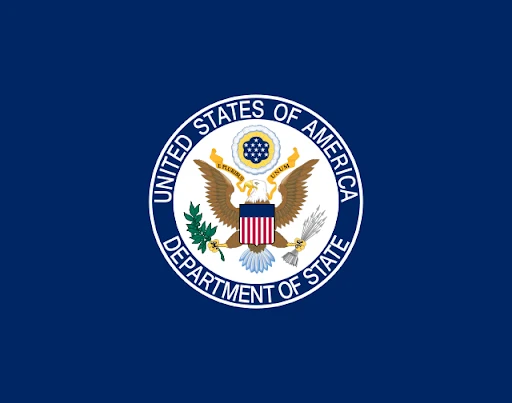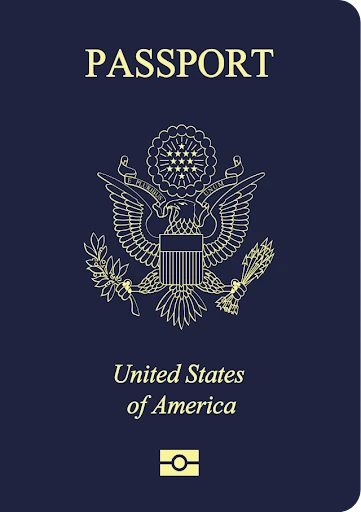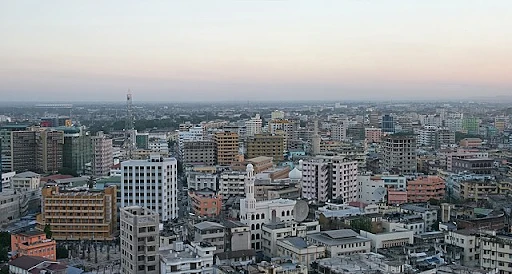As a spouse of a Foreign Service Officer (FSO), one is exposed to a unique lifestyle in the world of diplomacy. Traveling to remote areas of the world with your significant other can be an amazing experience; however, employment opportunities for FSO spouses are minimal and can cause frustration. Imagine a job where relationships with coworkers and supervisors are great—life is good. Then, your significant other gets an assignment at a new post, in another country. Having to leave your job, uproot your family, and move your belongings to a new country while now being newly unemployed, even once, is stressful. Now, imagine repeating that that process multiple times throughout your lifetime—this is how many FSO spouses live.
Although much is known about the life of an FSO and their accomplishments in diplomacy, not much is known about the life of their spouses—the ones who often support their significant others’ service as an FSO and travel with them to various regions of the world. Although this lifestyle can be exciting, it also comes with hardships. For example, it is often difficult for spouses to find outside employment for a variety of reasons. There may not be a bilateral work agreement in the host country, facilitating the process for Americans. Even if there is, the time available to find and do meaningful work would be limited to the duration of the FSO’s assignment. Therefore, many spouses opt to pursue the few—and often lower paying—“in-house” opportunities for employment within the diplomatic missions themselves.
Philmena Korff, the spouse of long time serving FSO Michael Korff, shares her story of how she worked her way up though government positions as an FSO spouse. She shared in her ADST oral history some stories of accomplishments and adversities as an FSO spouse. She held several positions around the world including as a consular associate in Dhaka, Bangladesh, where she worked on combating fraudulent travel documentation and potential drug mules; a narcotics affairs assistant in Kingston, Jamaica; as well as serving in the civil service.
Philomena Korff’s interview was conducted by Mark Tauber on October 28, 2021.
Read Philomena Korff’s full oral history HERE.
Read the 9/11 experience of Philomena Korff’s husband, Michael Korff’s, in Tanzania HERE.
Drafted by Taylor Nydam
ADST relies on the generous support of our members and readers like you. Please support our efforts to continue capturing, preserving, and sharing the experiences of America’s diplomats.
Excerpts:
“It’s hard for the spouse to find a job and do something that he or she likes.”
Big Rewards at a Small Post:
KORFF: Mike was assigned to Dar es Salaam, Tanzania. Like other small posts, employment opportunities for spouses were few.
Q: Okay, yeah. Yes, understood.
KORFF: It’s hard for the spouse to find a job and do something that he or she likes.
Q: Yes.
KORFF: In Dar es Salaam, the RSO hired me temporarily to fill-in for his secretary, who had gone to the U.S. for training.

Prior to the Ambassador’s arrival at post, he wanted a secretary, as his private-sector assistant couldn’t go overseas at the time. I submitted my application to the Washington desk for the Ambassador’s consideration. I later learned that although the Ambassador found my application favorable, the folks at the Department were not keen on placing a spouse in that position, especially since the new Ambassador was a political appointee and unfamiliar with how the State Department functioned. They discouraged him and offered the services of a seasoned foreign service secretary, recommended by the DCM [Deputy Chief of Mission], instead. Long story short, a few months later, both the DCM and the secretary were out, and I was hired along with a new DCM.
Q: Yes.
KORFF: We got along famously while I worked for him. He tried to accomplish a lot and was very enthusiastic when he first arrived. Unfortunately, the government officials in Tanzania did not move at the same pace, which began to frustrate him. He raised funds in the U.S. to build Habitat for Humanity houses for teachers at a school run by an American nun in Tanzania. My background in visas helped field calls that came into the ambassador’s office. Callers were upset and wanted to speak to the ambassador, thinking the Ambassador could flip consular officers’ decision in their relative’s visa case. The ambassador had complete faith in my handling visa calls; therefore, I would not put such calls through to him. At official functions, if he was approached about a visa matter, he would direct them to speak with me in his office. I would then discuss some cases with the Consular Chief and try to resolve cases one way or another. I knew that if the explanation was based on the eligibility of the visa application rather than the applicant, the explanation was accepted, and we moved on.
Q: Yeah! Wonderful.
KORFF: I often got to travel with the ambassador, even on out-of-town trips. His contacts were my contacts. They knew my position with the ambassador.
“I also assisted in the evacuation of U.S. citizens during the Lebanon crisis.”
Responsibilities in the Civil Service:

Q: And so, starting, I guess, in 2004, you entered the Civil Service in the Bureau of Consular Affairs. Let’s begin there in 2004. What were your responsibilities as you arrived?
KORFF: I rejoined the Civil Service in 2004, and all my prior service credits were added to my current employment status. As a Citizens Service Specialist, East Asia and Pacific Division, in the Office of Overseas Citizens Services, [OCS], Bureau of Consular Affairs, I covered several countries and my
responsibilities included Post oversight and support for emergency and non-emergency services and security awareness. I guided Post for possible evacuation of U.S. citizens when the military coup in Fiji became imminent. While an evacuation was not necessary, I coordinated warden messages and represented our Bureau at high-level crisis preparedness meetings. I assisted in adjudicating a significant backlog of passport applications at the Washington Passport Agency, caused by the new Western Hemisphere initiative that required U.S. citizens to travel to the U.S. from Mexico and Canada on U.S. passports. I played the key role of Consul General during a week-long Marine Expedition Exercise at Camp Lejeune, NC. I also provided leadership and support while serving temporarily as country adoption officer in the Office of Children’s Issues. I also assisted in the evacuation of U.S. citizens during the Lebanon crisis.
“I had to aggressively pursue employment opportunities and managed to persevere.”
Working Towards Equal Opportunity:
Q: Yeah, yeah. Now, let’s look back then on the career path that you had, while you were taking positions, and so on, did you see changes in how the State Department treated spouses? Were you getting more help? Or how would you describe the treatment spouses got over that period of time?
KORFF: Employment opportunities for spouses got progressively better, the State Department was doing a lot more for spouses than they did when I was overseas. I had to aggressively pursue employment opportunities and managed to persevere. When I was hired as a contractor in Kingston, it took me almost two years in getting INL to convert my position to a family member position that provided retirement benefits. Unfortunately, my supervisor was kind of lazy, he didn’t push the paperwork forward. Finally, a month or two before we were reassigned to another post, my efforts were successful. The person who filled my position after I left, greatly benefited from my efforts. Sadly, my contractor service could not be counted toward retirement. However, several years down the road, I was able to buy in retirement service credits for temporary employment stints as well as my time working in the U.S. Army Civilian Personnel Office, which had not been counted toward retirement. All in all, when I retired doing this rolling stone job, I completed twenty-six years.
TABLE OF CONTENTS HIGHLIGHTS
Experience
Frankfurt, Germany—Entitlements Clerk 1990–1992
Washington, D.C.—Passport Specialist 1994–1996
Washington, D.C.—Program Officer 2007–2008

